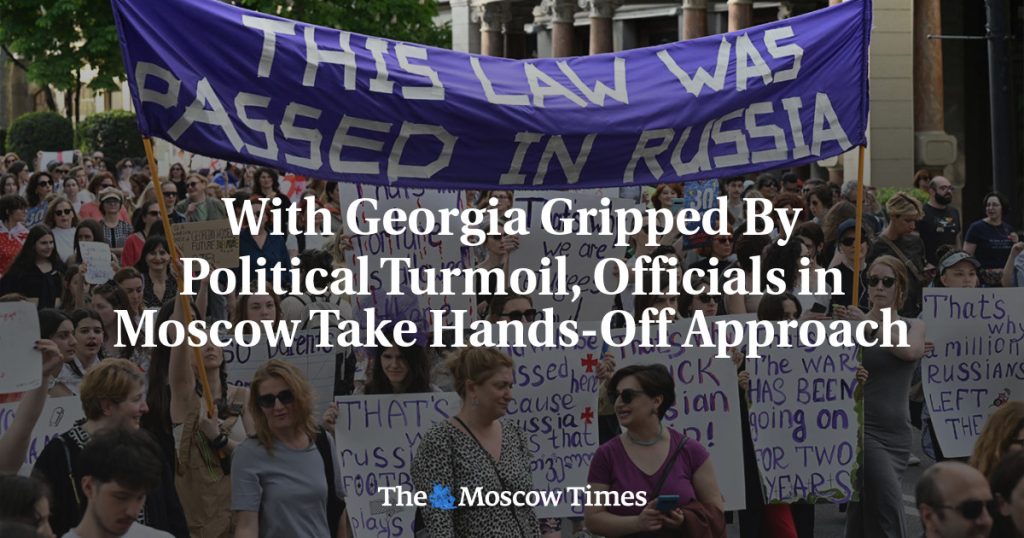Georgia’s controversial “foreign influence” bill has sparked sharp divisions within Georgian politics, with critics arguing that the ruling coalition is seeking to draw the country closer to Russia by passing legislation reminiscent of repressive laws enacted by Moscow over a decade ago. The draft law has led to tens of thousands of protesters rallying against what they call a “Russian law,” and some in Moscow believe that the political turmoil could benefit Russia. As officials in Russia observe the situation in Georgia with cautious anticipation, there is a sense of schadenfreude among some who see an opportunity to expand Russia’s sphere of influence in the region.
Despite the tensions surrounding the bill, the Kremlin and Russian officials have refrained from openly supporting the ruling Georgian Dream party as it moves to pass the controversial legislation. Kremlin spokesman Dmitry Peskov has denied allegations of Russian involvement in the political standoff, emphasizing that the bill is a means for countries to protect themselves from foreign influence on domestic politics, rather than a replication of Russian practices. While diplomatic relations between Moscow and Tbilisi remain severed following the 2008 August War, some channels of communication are maintained discreetly to avoid provoking a backlash from the Georgian public.
Many suspect that Georgian billionaire Bidzina Ivanishvili, who is leading the anti-Western shift within the ruling party, is pushing Georgia closer to the Kremlin with his influence. Ivanishvili has publicly criticized Western interference and pushed for controversial legislation, sparking concerns that he aims to align the country with Russia. The relationship between Ivanishvili and Russian authorities is seen as transactional, driven by pragmatic considerations such as business and the economy. However, there are fears that Ivanishvili’s pursuit of power may jeopardize Georgia’s relations with the West and strengthen ties with Russia, as he invests in maintaining the ruling party’s control over the government.
The mass protests against the “foreign influence” bill in Georgia have drawn comparisons to the Euromaidan protests in Ukraine, highlighting a deepening divide within Georgian society over Western values and geopolitical alignment. While some speculate that the Kremlin may seek to intervene to maintain influence in Georgia, others believe that lessons have been learned from past conflicts and that Moscow-Tbilisi relations may remain stable despite ideological differences. Nonetheless, there are concerns that Georgia’s alliance with the West may be hindered by external pressures and historical animosities, as Russia continues to assert its influence in the region.
Amidst debates over foreign influence and political alliances, there is a growing sentiment in Georgia that the country must navigate its path independently, balancing relationships with both the West and Russia. As the ruling party and opposition clash over the controversial legislation, the future of Georgia’s geopolitical orientation hangs in the balance. With tensions rising and external pressures mounting, the fate of Georgia’s democratic institutions and aspirations to join the EU remain uncertain, as the country grapples with internal divisions and external influences. The outcome of the political showdown in Georgia will not only shape the country’s future but also have implications for regional dynamics and international relations.


